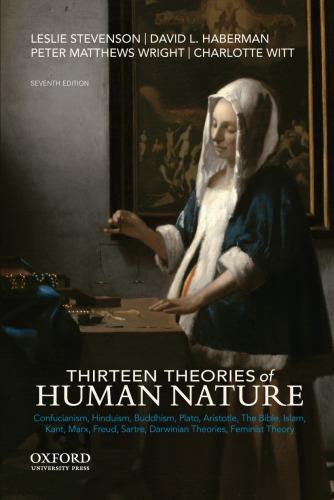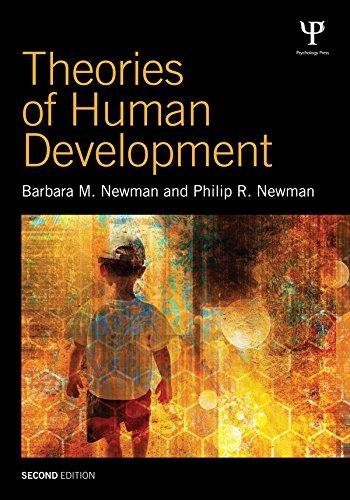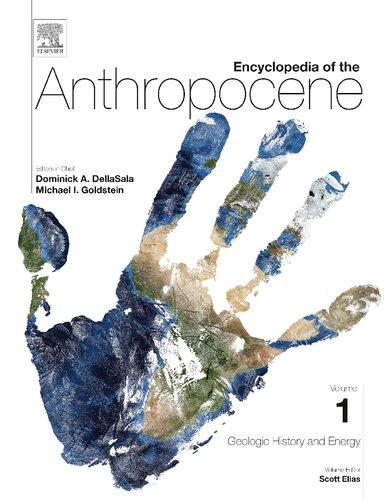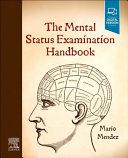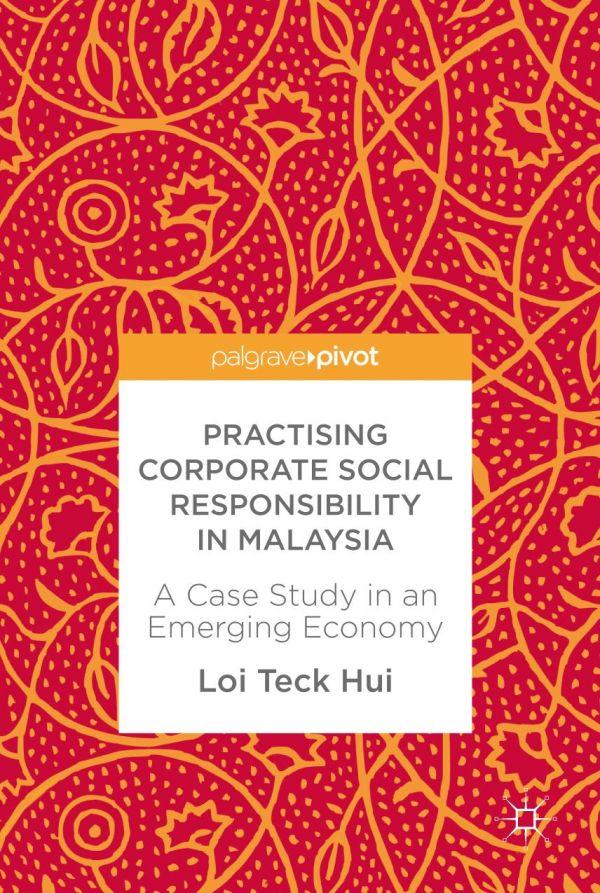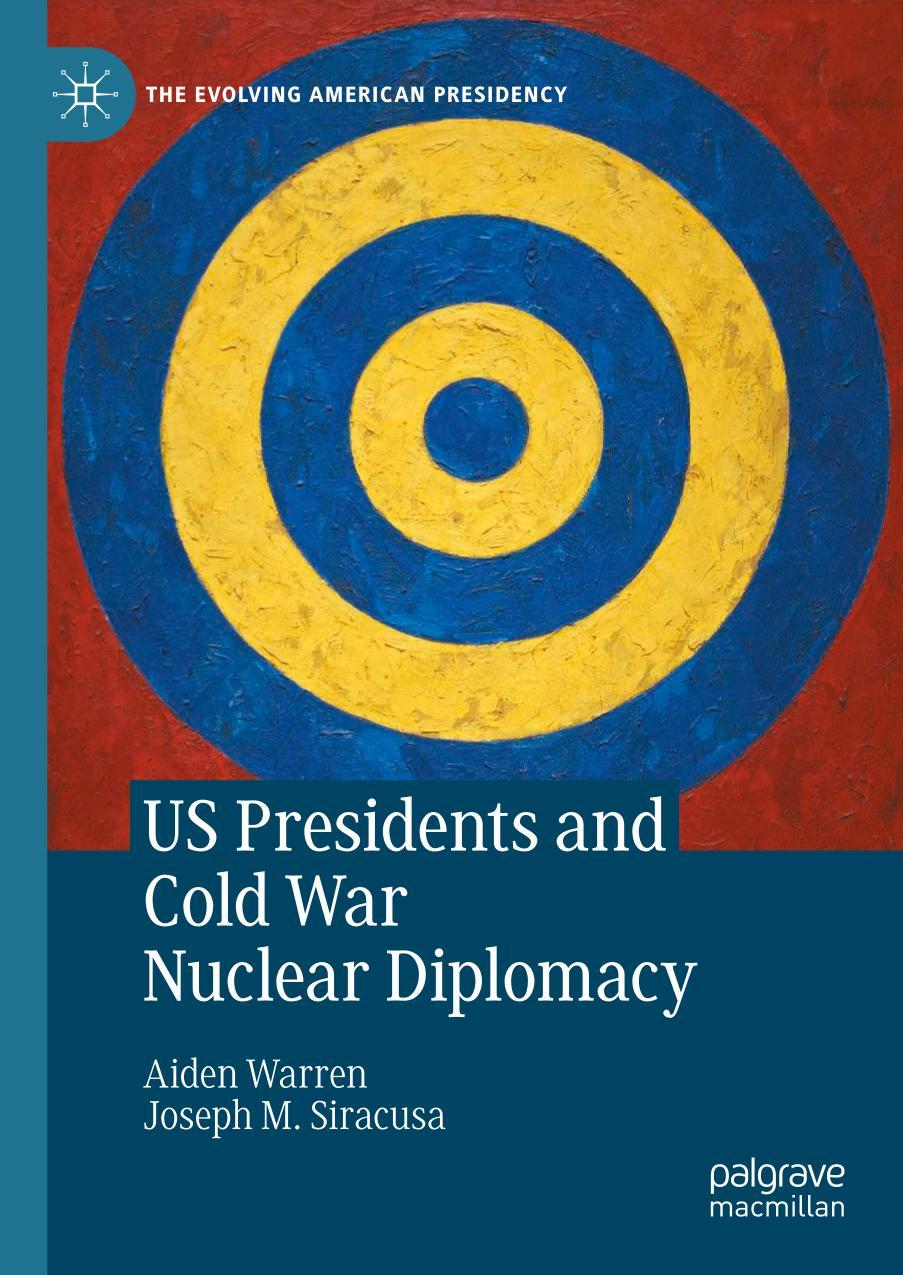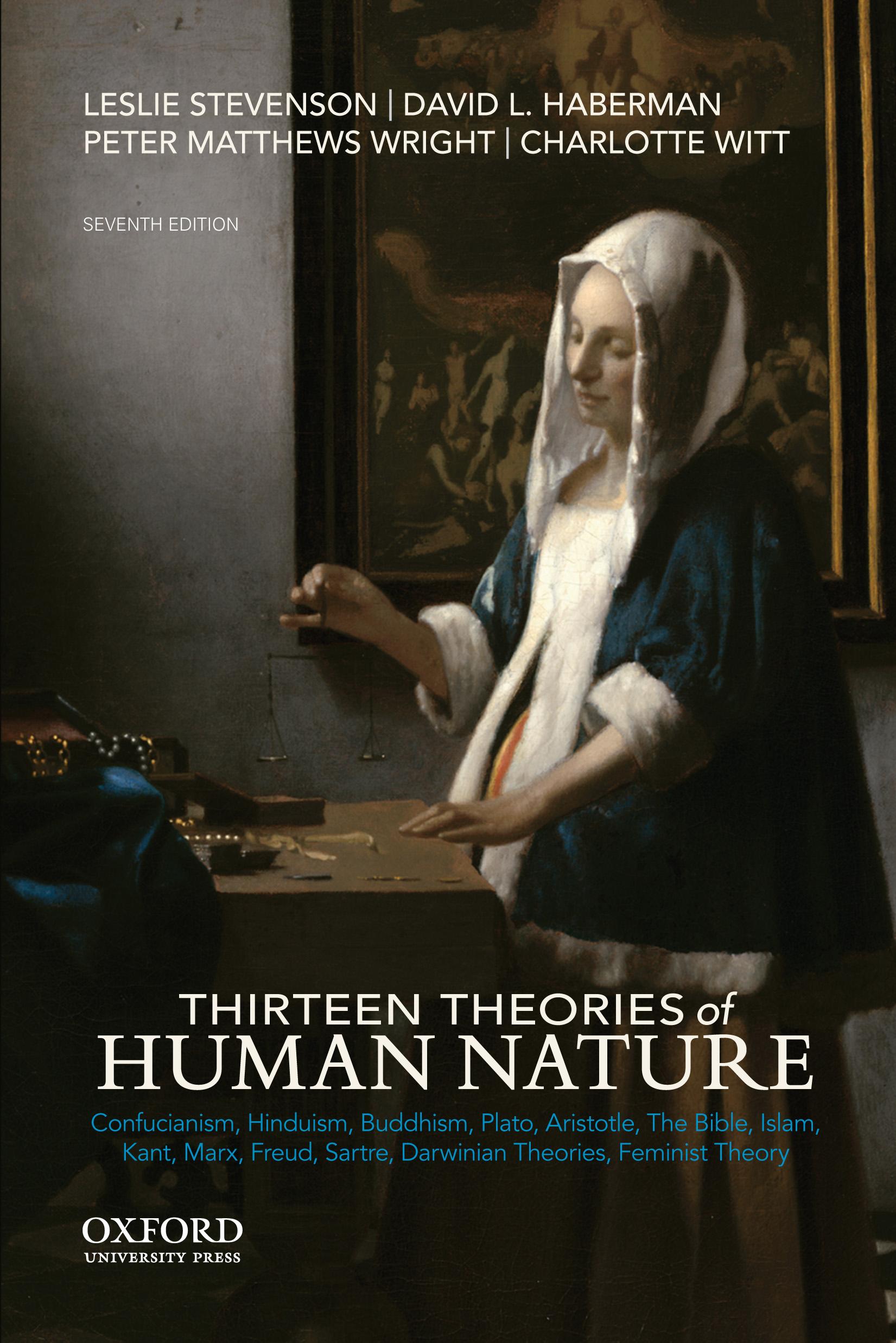Introduction: Rival Theories and Critical Assessments •
This book is meant for anyone who is looking for a “philosophy of life,” an understanding of human nature that gives guidance for how we should live. Such guidance is usually based on a diagnosis of what tends to go wrong with us and some sort of ideal of what we ought to be.
We are using our title phrase “theory of human nature” in a very wide sense to cover ancient religious traditions, some classic philosophical systems, and various more recent theories that claim to use the methods of science to make prescriptions for human life and society. This is to stretch the word “theory” beyond scientific theories. We could use the word “philosophy” in its classical sense of philosophia (love of wisdom), worldview (derived from the German term Weltanschauung), or ideology (the beliefs and values by which a certain society or community lives or claims to live). In our wide sense a “theory of human nature” encompasses the following:
1. a background metaphysical understanding of the universe and humanity’s place in it
2. a theory of human nature in the more specific sense of a distinctive set of claims about human beings, human society, and the human condition
3. a diagnosis of some typical defect, what tends to go wrong in human life and society
4. a prescription for correcting what goes wrong and an ideal for how human life should best be lived
Only theories in this very wide sense offer us hope of solutions to the problems of humankind. For instance, the assertion that everyone tends to be selfish (i.e., to act only for his or her own self-interest) is a very brief diagnosis, but it offers no understanding of what makes us selfish and no suggestion as to how we might overcome it. The command that we should all love one another is an attractive yet naive ideal; but it gives no explanation of why we find that so difficult and no explanation of what sort of “love” of others we should aspire to, and it offers no help in achieving it. The Darwinian theory of evolution says something important about the place of human beings in the universe, but it does not offer any prescription: as a purely scientific, causal explanation of how our human species came into existence, it does not tell us anything about the purpose or meaning of our life.
This book is not a conventional introduction to academic philosophy as usually defined these days, with its divisions of logic, philosophy of language, metaphysics, epistemology, philosophy of mind, ethics, political philosophy, aesthetics, philosophy of religion, and so on. We will touch on many of those areas, but our aim is to focus on thirteen selected systems of thought that offer answers to the sorts of existential, life-relevant questions that motivate many people to study philosophy in the first place, such as “What is our place in the universe?” and “Why are we here?” But it is important to note that such questions are ambiguous between the causal sense—“What brought us into existence?”—and the purposive sense—“What are we here for?” (What should we aim at, and do?).
Obviously, much depends on what theory of human nature we accept: for individuals, the meaning and purpose of our lives, what we ought to do or strive for, what we may hope to achieve or to become; for societies, what vision of human community we hope to work toward, what sort of social changes we favor. Our answers to these huge questions will depend on whether we think there is some “true” or “innate” nature of human beings and some objective standards of value for human life. If so, what is it, and what are they? Are we essentially products of evolution, programmed to pursue our self-interest and to reproduce our genes and thus fulfill our biological drives? Or is there no such “essential” human nature, only a capacity to be molded by society and its changing economic, political, and
cultural forces? Or is there some transcendent, objective (perhaps divine) purpose for human lives and human history?
RI vA l T heo RI es
On these fundamental questions there have been, of course, a variety of views. “What is man that Thou art mindful of him . . . Thou hast made him a little lower than the angels, and hast crowned him with glory and honor,” wrote the author of Psalm 8. The Bible, from the book of Genesis that opens the Hebrew scriptures to the Christian New Testament, sees human beings as created by a transcendent God in his own image, with a God-given purpose for human life. So does the Qur’an, the holy book of Islam. There are the great philosophical systems of Plato, Aristotle, and Kant, which set out objective standards of value for human lives and societies to aspire to.
On the other hand, Karl Marx wrote in the nineteenth century, “The real nature of man is the totality of social relations.” Marx denied the existence of God and held that each person is a product of the particular economic stage of human society in which he or she lives. “Man is condemned to be free,” said Jean-Paul Sartre, writing in occupied France during the Second World War. Sartre agreed with Marx’s atheism but differed from him in holding that we are not determined by our society or by anything else; rather, every individual person is free to decide what he or she wants to be and do. In contrast, would-be scientific theorists of human nature such as E. O. Wilson and Richard Dawkins have treated humans as products of evolution, with biologically determined, species-specific desires and patterns of behavior.
It will not escape readers’ notice that these quotations from the Bible, Marx, and Sartre all use the word “man,” where the intention was surely to refer to all human beings, including women and children. Such usage has been criticized for contributing to questionable traditions of the social and familial dominance of men and the neglect or oppression of women. These are important issues that involve much more than linguistic usage. We will note what our selected theories have to say about commonalities and differences between men and women. We will try to avoid sexist language ourselves (but it cannot always be avoided in quotations). Feminist issues will be more explicitly addressed in the new final chapter of the book.
Different conceptions of human nature lead to different views about what we ought to do and how we can do it. If an all-powerful and supremely good God made us, then it is his purpose that defines what we can be and ought to be, and we can presumably look to him for help. If we
Thirteen Theories of
are products of our society yet many human lives are unsatisfactory, there can be no real solution until human society is transformed. If we are radically free and can never escape the necessity for individual decision, then we have to accept this fundamental truth about ourselves and make our choices with full awareness of what we are doing. But if our biological nature predisposes us to think, feel, and act in certain ways, then we had better take realistic account of that in our individual lives and in social policy.
Rival beliefs about human nature are typically embodied in different individual ways of life and in political and economic systems. Marxist theory (in various interpretations) so dominated public life in communist-ruled countries in the twentieth century that any public questioning of it could have serious consequences. In earlier centuries Christianity occupied a similarly dominant position in Western society in belief and practice; heretics were often persecuted or even burned at the stake. The sixteenth-century Reformation resulted in multiple new differences within Christianity (which was already divided between Roman and Eastern traditions). There remains in some societies or subgroups a Christian consensus that individuals can oppose only at some social cost. Since its rapid expansion in the early Middle Ages Islam has occupied a dominating position in many countries, though it too has split into rival traditions, most notably the persisting conflict between Sunni and Shi’a. Judaism, based on ethnic identity at least as much as on theological belief, has survived the twentieth-century Holocaust and many earlier persecutions; but religious Judaism also divides into rival sects.
Yet in contemporary Western societies it is quite widely assumed that there are no objective values for human living, only subjective individual choices. Liberal democracy is enshrined in the American Declaration of Independence, with its acknowledgment of the right of each “man” (i.e., person) to “life, liberty and the pursuit of happiness”—usually interpreted as the right of each individual to pursue his or her own conception of happiness. It should be noted, however, that those who believe there are objective moral standards (whether religious or secular) may still defend a liberal political system if they think it unjust or unwise to try to enforce those standards in law and social policy. So although value-subjectivism supports political liberalism, the reverse is not the case.
Let us look a little more closely at Christianity and Marxism as rival theories of human nature and note some structural parallels between them. (Detailed examination comes in Chapters 6 and 9.) Although they are radically different in content, there are some remarkable similarities in the way the parts of each doctrine fit together and are used to justify different ways of life and practical policies.
First, each makes claims about the character of the universe as a whole. Christianity is, of course, committed to belief in God, a personal being who is omnipotent, omniscient, and perfectly good, the Creator, Ruler, and Judge of everything in this world. Marx notoriously condemned religion as “the opium of the people,” that is, illusory beliefs that distract people from the real socioeconomic problems of their existence. Accordingly, Christianity and Marxism offer very different interpretations of the meaning of human history. For the Christian, God uses the events of history to work out his purposes, speaking first to his chosen people as recorded in the Old Testament (the Hebrew scriptures), then revealing himself supremely in the life and death of his incarnate son Jesus Christ, and eventually bringing human history to an end in judgment. Marx claimed to find a pattern in history that is entirely internal to it, namely, a series of stages of economic development from tribal society through ancient slavery and feudalism to capitalism, with a predicted transition to an alleged consummation in a truly communist society. Thus, both see a meaning and purpose in history, though they differ fundamentally about the moving force and the direction of travel.
Second, they give very different accounts of the essential nature of human beings. According to Christianity (along with Judaism and Islam), we are made in the image of God and our individual destinies in eternity depend on our relationships with God. Everyone is free to accept or reject God’s purpose, and we will be judged according to how we exercise that freedom. Marxism denies any life after death and last judgment, holding instead that we are formed by the societies we are born and socialized into and that the nature of our lives and the progress we are able to make individually and socially depend on socioeconomic structure and change.
Third, there are different diagnoses of what is wrong with the human condition. Christianity says that our relationship with God is disrupted because we misuse our God-given freedom and are infected with sin. Marx also implied a similarly sweeping value judgment with his concept of “alienation,” which suggests that we fail to meet some ideal standard; his claim is that all human beings have potentials that ought to be fulfilled but will be only if capitalism is replaced by communism.
Fourth, there are very different prescriptions. Christianity holds that only the power of God himself can save us from our condition of sin, and the startling cosmic claim is that in the life and death of Jesus God has acted to redeem the whole world. It is painfully obvious that the world has not been perfected yet, but the Christian demand is that we each accept what God has done for us in Christ and work it out in our
lives with his help. Human society will not be redeemed until individual lives are transformed by divine grace. Marxism says the opposite: that there can be no substantial improvement in individual lives until the economic system is transformed into communism. This revolutionary change is said to be inevitable because of the laws of economic development, but individuals who realize the way history is moving can join the communist movement and help shorten the birth pangs of the new age. Each belief looks forward to a future fulfillment in which human beings and society will be redeemed, whether in life after death or in a future stage of history.
As a last point of comparison, note that for each of these total belief systems, there has been a human institution that claims the allegiance of believers and exerts its authority on belief and practice: the Church or the Communist Party. To be more accurate, there have long been rival Christian churches, and since Marx’s time there has been a variety of communist or socialist parties. Notoriously, churches and revolutionaries have differed markedly (and sometimes violently) among themselves about the correct interpretation of their fundamental dogmas and how to apply them to changing social conditions.
Faith in Marxist theory and the ideal of communism was found in the early twentieth century among a few Western intellectuals and in those brought up in the Soviet system, but it is now hard to find any “true believers,” except perhaps in North Korea. China is still nominally communist with a one-party state, but its practice has become increasingly capitalist and nationalist. Christian faith is still with us, in many varieties. Tragic history has eroded belief in secular schemes of salvation, but new species may emerge.
Outside the West other theories of human nature have had significant social influence. Since 1948 Judaism has been re-established in Israel, one of the few contemporary states officially based on one religion. Islam, which shares its Middle Eastern origins with Judaism and Christianity, is undergoing a resurgence as the peoples of the Muslim world reject some aspects of contemporary Western culture (we are thinking here not of the terrorism that dominates the news but of the millions of peaceful defenders of Islamic religious and cultural identity). In India Hinduism is resurgent. Buddhism, originally an Indian religion, spread into China, Japan, and elsewhere in Asia; it has gained converts in the West and has taken nationalist form in some countries. After the withering away of communism, many Russians have returned to their Orthodox Christian tradition. And as China evolves beyond Marxism, the ancient Chinese philosophy of Confucius has been looked at again.
We have selected thirteen theories (philosophies or worldviews) for detailed examination. In each case we provide some critical comments that we hope will encourage students to think for themselves, and we recommend plenty of further reading. We will not endorse any one theory as the “best buy” but leave our readers to make up their own minds. Before we begin our main business, let us review the prospects for impartial, rational assessment of these highly controversial matters.
T he CRITICA l e XA m I nATI on o F T heo RI es
Many of these theories have been embodied in human societies and institutions. As such, they are not just intellectual constructions but ways of life, subject to historical change, growth, and decay. A system of beliefs about the world and human nature that is held by some set of people not in a purely academic or scientific way but as giving rise to their way of life has been called an “ideology.”
When a belief is used to justify the way of life of a social group, it will be difficult for the members of that community to consider it objectively. There may be strong social pressures to conform to it. People will feel that their set of beliefs, even if perhaps open to some theoretical difficulties, contains vitally important insights, a vision of essential truths that have practical, or even inspirational, importance. For many people, to question their ideology or theory of human nature is to threaten what gives meaning, purpose, and hope to their life and to cause psychological discomfort or distress. Inertia and unwillingness to admit that one is wrong play a part here. If one has been brought up in a certain belief and its associated way of life or if one has converted to it and followed its precepts, it takes courage to question or abandon one’s life commitment (sometimes a convert becomes even more strongly committed to a belief system than those born into it).
The prospects for impartial, rational, “purely philosophical” examination and evaluation may not seem bright then. In so many discussions and debates in public or in private one feels that people’s positions have already been decided (by social conditioning or individual commitment) long before and that all one gets by way of “debate” is a restatement of prejudices on all sides. Thus, one finds people dogmatically defending their favored ideology or theory of human nature in the face of all intellectual and moral objections.
First, believers typically look for some way of replying to objections, but often that seems to be merely “explaining away,” recycling elements of the favored ideology without dealing with the real point of an
Thirteen Theories of Human Nature
objection. For example, in response to the standard “problem of evil” a theist may say that God does not always prevent evil or answer our prayers and that what seems bad to us may ultimately be for the best. Human suffering under a revolution or new political regime has often been excused by its propagandists as the necessary birth pangs of a new world order. Preachers and politicians become well practiced at such justification of the ways of God and his church or of the ruling party and its leader.
Second, the believer can take the offensive by attacking the motivation of the critic. Christians may say that those who persist in raising objections are blinded by sin, that it is their own pride that prevents them from seeing the light. The Marxist may claim that those who do not recognize the truth of Marx’s analysis are deluded by the “false consciousness” typical of those who benefit from capitalist society. In the case of Freudian theory (see Chapter 10) criticisms of psychoanalytic theory have sometimes been diagnosed as resistance based on unconscious emotion. In such ways, suspicion is cast on a critic’s motives by analyzing them in terms of the very theory being criticized.
If a theory is defended by these two devices
1. not allowing any evidence to count against the theory, always assuming that there must be some way of explaining away putative counterevidence
2. answering criticism by analyzing the motivations of the critic in terms of the theory itself
we can say that it is being held as a “closed system.” However, this does not mean that all believers in a theory have to hold it in a closed-minded way.
Is it possible, then, to discuss various theories of human nature rationally and objectively, as we set out to do in this book? When such theories are embodied in ways of life, belief in them seems to go beyond reasoning: the ultimate appeal may be to faith or authority, community membership, loyalty to church or party or nation. There may be no answer offered to the questions “Why should I believe this?” or “Why should I accept this authority?” that will satisfy someone who is not already a member of the relevant group or tradition.
In the contemporary world rival traditions and ideologies are as influential as ever. Religious, cultic, political, national, racial, ethnic, therapeutic, and gender-based dogmas are asserted with various degrees of aggression or politeness, crudity or sophistication. The mass media may try to bring different cultures or traditions into discussion, but all too
often the results are only confrontation rather than genuine dialogue, mutual listening, and understanding. It is obvious that many people feel the attractions of certainty, commitment, identity, and membership of a strongly defined community, notably in various forms of “fundamentalism” that appeal to what are seen, rightly or wrongly, as the essential themes of Christianity, Judaism, Islam, Hinduism, Marxism, “free market-ism,” or nationalism.
In reaction to all this, skepticism and cynicism are tempting. Nowadays they tend to take the form of cultural relativism or postmodernism, according to which no particular cultural tradition or ideology or theory of human nature can have any more justification than any other. One of the most influential prophets of these contemporary trends was the nineteenth-century German philosopher Friedrich Nietzsche, who has been described as a “master of suspicion” because he was always ready (like Marx before him and Freud after him) to diagnose an unacknowledged ideological commitment or psychological need behind claims to supposedly “objective” truth or morality. If we jump to the conclusion that there can be no such thing as a true account of human nature or any rational evaluation of rival theories about it, the project of this book may seem doomed from the start.
We want to suggest, however, that such despair would be premature. For one thing, not all the theories we discuss are the ideologies of any identifiable social group, and in those cases there is less likelihood of their being defended as closed systems. But more importantly, even if a theory is held by many people in a closed-minded way, some degree of rational evaluation is still possible for those who are prepared to try it. We can always distinguish what someone says from his or her motivation for saying it. Motivation is relevant if we wish to understand the personality and social background of the speaker, but if we are concerned with the truth or falsity of what is claimed and with whether there are any good reasons for believing it, then the motives of particular speakers are irrelevant. Someone may have admirable motivation for saying something that is nevertheless false, and someone else may be saying something true even if his or her motivation for saying it is questionable. Criticism is not refuted by disparagement of the critic (the most annoying critics are those who are partly right).
So if our concern is whether a theory is true, the objections that anyone produces against it must be replied to on their merits, regardless of people’s motives. And if motivations are considered, to analyze them in terms of the theory under discussion is to assume the truth of that theory, and thus to beg the question (i.e., to argue in a circle), to take as granted something that should not be taken for granted. An objection to a theory cannot
Thirteen Theories of Human Nature
be rationally defeated just by reasserting part of the theory. It is open to us to make the effort to discuss and evaluate on their own merits the propositions and theories that anyone asserts (with all due politeness and respect to the assertor).
As to the first feature of closed systems, we can always ask whether the attempt to “explain away” an objection is successful. It is not enough just to come up with a rhetorical flourish, a one-liner or sound bite that may surprise people in debate and convey the impression that one has successfully maintained one’s position. Rational, philosophical discussion— unlike “debates” in politics and in the media—is open-ended: there are no time constraints, and it is always possible to re-examine what has been said, to see if it can stand up to further scrutiny. So any attempt at “explaining away” can be held up to careful examination, to try to decide whether it is really convincing. Many people do not have the time, patience, or willingness to engage in that kind of ongoing, open-minded debate—but that does not prevent others from trying their best to do so. The ancient Greek philosopher Socrates gave us this method of “Socratic dialogue” (see Chapter 4). Jesus also set an example of being willing to talk and argue seriously with anyone, even the socially outcast, though not so much about theological questions but with concern for their spiritual well-being.
So we say to the committed (including “fundamentalists” of any religious or political persuasion) that we are asking you not to give up your commitment but to think about it. You can compare it with other theories, considering how far you would agree or disagree with them. You can consider how you can best reply to objections to your own beliefs. You can think about which parts of your tradition you feel lay hold of fundamental truths and which parts are perhaps optional—historically influential but not to be imposed on everybody now. It is up to you at every stage to make up (and perhaps change) your own mind about exactly what you want to affirm.
To the uncommitted or skeptically inclined we say, everybody has to have some sort of theory of human nature or philosophy to live by: you will surely have some conception of what affects human well-being and some views about what is worth aiming for, at least your own long-term happiness—and what does that consist in? We invite you to consider our selected systems of thought, to compare your present view (however minimal or relativist it may be) with them, and to try to rationally evaluate the differences. No human being who lives at a more than animal level can completely opt out of offering reasons for his or her beliefs and actions.
some BA s IC P h I loso P h ICA l Tools
If we are in the business of serious rational evaluation of beliefs, theories, and ideologies, we need to make distinctions between various different kinds of statements or claims, to see what kind of consideration or justification is appropriate to each. What follows is part of any basic philosophical tool kit.
Value Judgments
First, a statement may be a value judgment”, saying what ought (or ought not) to happen, rather than a factual statement about what is actually the case. Claims about human nature are especially subject to ambiguity on this. For example, is it “natural” for human beings to drink cows’ milk, to tunnel into the earth for minerals, or to fly about in planes? Is it “natural” for us to be selfish or compassionate, peaceful or aggressive, well balanced or obsessive? The words “natural,” “unnatural,” and “nature” should be regarded as danger signals here, indicating possible confusion. If someone says “Human beings are naturally X,” we should ask them, “Do you mean that all (or most) humans are X?” or “Human beings ought to be X?” or “We have an innate tendency to X?” (and should that tendency be encouraged or resisted?) or perhaps “Humans beings were X before civilization?” (and what is civilization, anyway?).
To take a controversial case about which there are deeply held beliefs and attitudes on all sides, it is often said that homosexuality is unnatural, and it is usually implied that that makes it wrong. Homosexuality has been known in almost every human society, but the reply will be that it is practiced only by a minority in each. Yet there are plenty of activities that are minority pursuits without being wrong (e.g., stamp collecting, playing tennis, or having your head shaved). Conversely, in ancient Greece perhaps a majority of men engaged in homosexual as well as heterosexual relations, but someone can still assert that that was wrong. Clearly, the sociological facts about who, or how many, go in for a practice do not decide its rightness or wrongness. Obviously, homosexual acts are unnatural in the sense that they cannot result in conception, so two cohabiting gays or lesbians cannot have a family to which both have contributed their genes. But these biological facts do not decide the relevant questions of value: whether everybody should have children, whether artificial (“unnatural?”) means of conception by insemination are wrong, and whether the only right way of bringing up children is in the traditional (“nuclear”) family. And, of course, the historical fact that an authority (a sacred text, cultural or tribal tradition, or legal statute) has outlawed homosexuality does not make it wrong for everyone, everywhere. But we are not here trying to
Thirteen Theories of Human Nature
decide this emotive issue—we are merely using it as a vivid example of the need to distinguish factual assertions from value judgments (confusion between the two is called the naturalistic fallacy).
Another example involves the concept of person, which is crucial for so much of our ethical thought. Who or what counts as a person? Much of the controversy about abortion revolves around the question of whether a human fetus is a person. Does a person come into existence at the very moment of conception when sperm meets egg, at some stage of pregnancy (which stage?), or perhaps not until birth? What about a human who is brain-dead or so brain-damaged or demented as to be permanently incapable of all communication? Is he or she still a person? Or are there perhaps degrees of personhood: can it come into existence in stages or fade away gradually? If intelligent and friendly aliens from another planet get to communicate with us, would they count as persons? So can there be humans who are not persons and persons who are not human?
These questions may sound as if they are about a matter of fact, as if there is some esoteric, hard-to-discern truth about who or what is really a person that might be decided by further scientific research or for some people might be resolved in a different way by the authority of a moral or religious or legal tradition. But we suggest that the word “person” is a value term, meaning a being that has some degree of rationality, free will, and moral responsibility and accordingly deserves fundamental respect and should be accorded rights and duties. “Human being” is often used synonymously with “person,” but it helps clarity of thought to keep it as a factual, biological term for the species Homo sapiens. If we make that distinction, there may be radically defective members of our species (for example, the brain-dead) who do not merit the value term “person,” and for all we know there may be intelligent nonhuman species in the universe who should count as persons.
The human nature we discuss in this book is the nature of our biological species, but most, if not quite all, members of the human species have sufficient rationality, free will, and responsibility to count as persons. It is typical for us to manifest those distinctive mental capacities; they develop gradually in infancy and childhood, but they are deficient in those who are severely mentally handicapped and can fade away in mental illness or dementia. At the edges, therefore, personhood would seem to be a matter of degree.
Scientific Theories
Value judgments cannot be proved or disproved merely by finding out facts in the world, though some facts about human nature may be very
relevant to them, for example, the fact that human infants and children need long-term loving care to develop well. If a statement can be proved or disproved by investigation of the relevant facts, involving perception through our human senses, sometimes aided by instruments, it is called an empirical statement.
Science depends crucially on empirical reports of observable facts, often in experimentally controlled situations (though meteorologists can’t control the weather and astronomers can’t perform experiments on the stars). But science is much more than the recording of individual observations; it typically involves the search for general statements (“laws of nature”) that hold true universally throughout space and time. Scientific theorizing now extends to millions of years of the prehistory of the earth and earlier forms of life on earth and to the furthest reaches of the universe, thus to regions of space and time that we cannot directly perceive. It also tells us about the DNA in every living cell, the chemical elements and their laws of combination, the atomic structure of the elements themselves, and the still smaller entities that mysteriously obey the probabilistic laws of quantum mechanics. None of this is observable by our human senses; rather, these theories are evidenced by our interpretation of what we can observe, such as the ways in which stuffs chemically interact, the outputs of radio telescopes, X-ray crystallography, or experiments in elaborate and expensive particle accelerators. The testing of scientific theories typically involves assumptions about how the relevant pieces of kit and measuring devices work. The connection with human observations is indirect but real.
The twentieth-century philosopher of science Karl Popper put the emphasis on falsifiability as a criterion for scientific status. He pointed out that scientific theories can never be completely and conclusively verified, for their laws have implications for what happens anywhere and, obviously, we can never check out the contents of the whole universe throughout all time. However, it is an elementary truth of logic that if we come across even a single genuine counterexample to a putative law of nature, that decisively proves it false. Popper treated the practice of science as a two-step process of thinking up (creatively and imaginatively) general theories as hypotheses to try to explain the facts observed so far and then devising crucial tests for these hypotheses (often in cunningly designed experimental setups) to find out whether they hold true in those conditions. There are plenty of instances in the history of science when a previously accepted theory has been found to be false or to apply only within a more limited class of cases than previously thought. But that should not diminish our confidence in those fundamental theories that have been confirmed over and over again in a huge variety of conditions,
Thirteen Theories of Human Nature
such as the laws of gravitation, chemical combination, and natural selection as a mechanism of biological evolution (see Chapter 12). Although the logical possibility of finding counterexamples to these theories always remains, they can be said to be known beyond all reasonable doubt, for they apply without exception to everything that has been observed so far.
Falsifiability can thus be used as a criterion to distinguish scientific theories from metaphysical claims. But “scientific” here does not imply true, only that the theory has the crucial empirical status that some logically possible observations could count as evidence against it. In other words, candidates for scientific truth have to submit themselves to the test of observation, a test that they may either fail or live on to fight another day, perhaps passing further tests, and thereby earn the status of (at least provisional) knowledge.
Metaphysical Theories
“Metaphysics” is a word that has had many uses, some of them honorific, many of them not. Metaphysical statements or theories make some very general and fundamental claim about the nature of everything that exists, typically going beyond scientific evidence – hence the term “metaphysics.” According to Popper, they are not scientific unless they are capable, in principle, of some sort of empirical test. The eighteenthcentury German philosopher Immanuel Kant presented a famous trio of metaphysical claims—the existence of God, the immortality of the soul, and the freedom of the will—which he said cannot be empirically proved or disproved, though he argued that we need to believe them on other grounds connected with our moral lives (see Chapter 8).
A traditional metaphysical claim about human nature is dualism , the view that we have immortal souls or, rather, that we essentially are immaterial souls (as Plato and Descartes argued, see Chapter 4 and the Historical Interlude between Chapters 7 and 8). Usually, a soul is understood as a nonmaterial, nonobservable substance that persists through time, carrying personal identity, so that we can continue to exist as the same person after death. Could the existence of such souls be confirmed, and more crucially could it be falsified by any possible observation? In this life our states of consciousness, our thoughts and emotions and even perhaps our spiritual states, can be expressed through what we say and do; and human speech and actions are readily observable. But that truism is common to both dualist and materialist metaphysics of human nature, and cannot be deployed to the advantage of either since materialism says that all our mental states are somehow embodied in our brain states.
“Spiritualists” who believe that the dead can communicate with us claim that their seances provide evidence from “the other side,” but their alleged evidence is not usually submitted to independent scrutiny. If the medium comes up with factual details that he or she could not have come to know in any normal way, the hypothesis of telepathic knowledge is simpler than the claim of communication from a deceased person. So if no observable evidence can count for or against dualism, it is not a scientific but a metaphysical theory. But the same is true of materialism since all observable evidence can presumably be interpreted within a materialist scheme and so could not falsify it.
This example strongly suggests the inadequacy of some philosophers’ attempts to dismiss metaphysical statements as meaningless. David Hume in the eighteenth century (see the Historical Interlude), Comte in the nineteenth, and Schlick and Ayer in the twentieth (the so-called logical positivists) argued that any statement that is neither true by definition nor empirical is meaningless. (They also treated value judgments as not really statements but recommendations to action, a kind of disguised imperative.) But it is now generally agreed that this was too short a way with metaphysical theories. They are not nonsense like “The mome raths outgrabe” (Lewis Carroll), or in a different way “Colorless green ideas sleep furiously” (Noam Chomsky), nor are they self-contradictory like “Death is the end of life, but people live on after death.” However, the challenge remains that any statement that is neither a value judgment nor true by mere definition (an analytic statement), nor testable by observation, has a problematic status. The examples considered above suggest that some of the most interesting and controversial claims about human nature may not be empirically testable. This need not condemn them outright, but it is important to establish this, for they cannot then claim the epistemological status of being scientific truths that are justified by objective observation plus rational, culture-neutral argument. Perhaps metaphysical statements can have some other legitimate function, but we had better inquire carefully what that might be in each case.
Courses in moral philosophy, theory of knowledge (epistemology), philosophy of science, and metaphysics consider these issues. But the aim of this book is to examine specific theories of human nature in detail. We begin with religious traditions that are much older than science, usually based on the inspired teachings or example of a charismatic founder (or set of founders). The philosophies of Plato and Aristotle were based more on rational argument, with some appeal to well-known empirical facts (the beginnings of science can be found among the ancient Greeks). Kant, writing a century after modern science got going, was explicit about the difference between his philosophy and science, as was Sartre.

